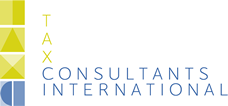Corporate Tax Services Transfer Pricing International Tax Planning Greece
In our news item of 27 September 2017, we already informed you of the intended broadening of the Dutch dividend withholding tax exemption at source to include distributions to qualifying shareholders in treaty countries (next to the already existing exemption for qualifying resident of EU/EEA countries).
In our publication of 27 September 2017, we already informed you of the intended broadening of the Dutch dividend withholding tax exemption at source to include distributions to qualifying shareholders in treaty countries (next to the already existing exemption for qualifying resident of EU/EEA countries).
This expansion of the dividend withholding tax exemption, including specific anti-abuse provisions in relation thereto, have come into force at 1 January 2018.
- The exemption for qualifying EU dividends under the pre-2018 law
- The exclusions under the pre-2018 law
- The exemption as from 2018
- The anti-abuse rule
- Full abolition of the Dutch dividend withholding tax?
- Contact - how can we help you?
The exemption for qualifying EU dividends under the pre-2018 law
As some background, based on the EU Parent/Subsidiary Directive, a full exemption on dividend withholding tax may apply in case of a profit distribution to qualifying EU parent companies. In order to qualify for this exemption two conditions have to be met which are incorporated in the Dutch Dividend Tax Act:
The beneficiary to the dividend is a qualifying corporate body that is according to the tax legislation of that other EU Member State or an EEA Country (Norway, Iceland and Liechtenstein) a resident of that EU Member State or EEA Country; and
the beneficiary to the dividends owns at the time of dividend distribution at least 5% of the issued shares of the Dutch subsidiary.
The exclusions under the pre-2018 law
The exemption of Dutch dividend withholding tax at source does however not apply if:
the beneficiary to the dividends according to a tax treaty concluded with a third State is (also) considered to have its residency outside the EU or EEA in a country with which the Netherlands had not concluded a tax treaty containing a provision for dividends;
the beneficiary has a function similar to that of an investment company as defined in the Dutch Corporate Income Tax Act;
the beneficiary is not entitled to an exemption based upon an anti-abuse clause as incorporated in a tax treaty concluded by the Netherlands and the State of residency;
the beneficiary is not considered the ultimate beneficial owner of the dividends;
the newly introduced anti-abuse provision applies.
The term “beneficial owner” has not been defined as such in Dutch tax law; however, the Netherlands introduced anti-dividend stripping rules.
The exemption as from 2018
As of 2018, the exemption for dividend withholding tax is broadened for qualifying interests in Dutch corporations (like a BV, NV and also so-called holding cooperatives) not only to the case where the parent companies is tax resident in the EU or EEA, but also now a third country that has concluded a tax treaty with the Netherlands that contains “qualifying provisions” relating to dividend withholding tax
This broadening of the dividend withholding tax exemption at source towards third countries is not unlimited; the tax treaty should be concluded containing provisions relating to dividend withholding tax, albeit the treaty does not need to provide for an exemption itself. However, any anti-abuse provision provide by the treaty will have to be considered and can if it applies disqualify the exemption at source (because this is prima facie a condition for the exemption at source - see above).
The anti-abuse provisions now aligns with the anti-abuse provision included in the Dutch Corporate Income Tax Act which can result in the levy of Dutch corporate income tax from the income (including dividends and capital gains) earned by foreign corporate shareholders of Dutch corporations and members of a Dutch cooperative. In most cases the dividend withholding tax can be credited against the corporate tax due (as a pre-levy) so that double taxation should be generally speaking not occur.
The anti-abuse rule
The anti-abuse rule provides that the dividend withholding exemption at source does not apply if, briefly summarized, the foreign shareholder holds the interest in the Dutch entity with the main purpose (or one of the main purpose) of avoiding Dutch dividend withholding tax (”subjective test”). If Dutch tax is indeed avoided by the imposing of the foreign holding company, then it should be assessed whether the structure or transaction is considered artificial and not set up for valid business reasons (”objective test”).
A structure or transaction are not (deemed) artificial if it has been set-up based on valid business reasons that reflect economic reality. Valid business reasons are deemed to be met (for instance) if the parent company of the Dutch entity meets specific substance requirements and a specific list of ‘substance requirements’ has been drawn-up as to be considered sufficient. These include residency of board members, qualified staff, wage costs of at least EUR 100,000 and (long-term) office lease.
Another way to substantiate valid business reasons for the interposing/existence of a foreign holding company, is to substantiate the “switch function” (in Dutch: “schakelfunctie”) of the foreign holding company between the operational activities of the Dutch corporation and the operational activities of the parent or ultimate parent of the intermediary holding company, or by substantiating the status of the foreign holding company as “top holding company”. These concepts are based on case law and old written policy statements which now revive as consequence of the introduction of the valid business reason test.
If based on the above mentioned anti-abuse provisions the dividend withholding tax exemption will not be applicable then the provisions of an applicable tax treaty still needs to be followed.
Full abolition of the Dutch dividend withholding tax ?
A potential full abolition of the dividend withholding tax in the Netherlands is a matter of continuing debate between the Dutch Coalition Parties, but has been materialized in concrete law proposals yet.


.png)


